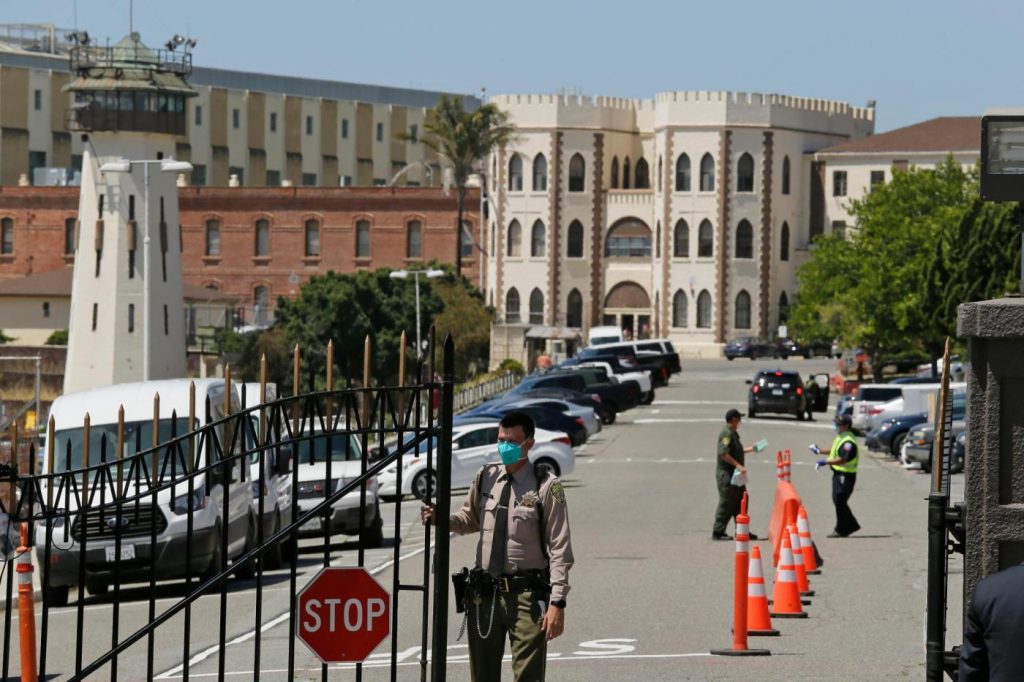California voters have rejected a ballot measure that would have banned forced labor in jails and prisons, yet more evidence from the Nov. 5 election that voters have lost their appetite for criminal justice reforms amid growing frustrations over what many see as worsening crime in their communities.
With nearly three-quarters of the vote counted on Monday, the measure, Proposition 6, trailed with 46.2% support. The Associated Press called the race Sunday evening.
The proposition would have removed a provision from the California Constitution that allows “involuntary servitude” as punishment for a crime. If passed, it would have prohibited corrections officers from disciplining inmates for refusing work assignments such as cooking, cleaning or other tasks.
The measure’s failure — despite having no organized opposition — is in line with voters’ decisions this election to overwhelmingly approve Proposition 36, which will roll back past sentencing reforms for low-level drug and theft crimes, and to oust progressive district attorneys Pamela Price in Alameda County and George Gascón in Los Angeles County.
Larry Gerston, a political science professor at San Jose State University, said that while reported crime is on the decline, Californians appeared eager to use their vote to express growing public safety frustrations that emerged during the pandemic.
“There’s a kind of a reservoir of anger,” Gerston said. “The data itself does not suggest this kind of reaction.”
California lawmakers agreed to put Proposition 6 on the ballot at the urging of criminal justice advocates. Since 2018, at least a half-dozen states — including Alabama, Colorado, Nebraska, Oregon, Tennessee, Utah and Vermont — have approved similar measures.
This November, Nevada voters also decided to ban involuntary servitude in prisons and jails. Excluding Nevada, California remains one of 15 states where the practice is still legal.
Some advocates blamed the measure’s failure in part on the fact that the state voter guide’s official summary of the proposition omitted the word “slavery” in favor of “indentured servitude.” Gerston said the “yes” campaign also failed to explain to voters what the measure would actually do.
“When voters are confused, they vote no,” he said. “Why would they vote for something they don’t understand?”
In the wake of the defeat, measure backers said they would “redouble their efforts” to end “forced prison slave labor.”
“It is clear we have more work to do to educate Californians about involuntary servitude,” Dorsey Nunn, former executive director of Legal Services for Prisoners with Children, a key supporter of Proposition 6, said in a statement. “The race for justice is not to the swift, but those who endure.”
The measure’s main opponents, the state Republican Party and the Howard Jarvis Taxpayers Association, did not appear to raise any money to campaign against the proposition. Even so, they argued the measure would open the door to court rulings that could force the state and counties to pay inmates minimum wage to complete work assignments.
“That would cost billions of dollars annually and greatly burden the hard-working taxpayers of California,” the association said in a statement.
Related Articles
New and familiar faces lined up for city councils across East Contra Costa County cities
‘We are very scared’: Fear grips migrant families on both sides of the California-Mexico border over Trump deportations
Is a ‘red wave’ sweeping Southern California? Why Republicans are already celebrating the 2024 election
Path is clear for Gov. Gavin Newsom to run for president, insiders say
Lateefah Simon wins bid for Rep. Barbara Lee’s House seat
An analysis by the state’s nonpartisan Legislative Analyst’s Office, however, found any increased costs would likely not have exceeded “the tens of millions of dollars each year.” If, instead of payment, prisoners were offered “time credits” to reduce their time served, the measure might actually have saved money, the analysis found.
According to the analyst’s office, roughly one-third of prisoners do some kind of work, including making license plates, preparing food or even fighting wildfires. Many are now paid less than $1 per hour, while some also earn time credits.
Late last week, the Associated Press also determined Proposition 5, which sought to lower the threshold for voters to approve local affordable housing and infrastructure bond measures, had failed. On Monday, it was trailing with 44.4% of the vote.
In the Bay Area, proponents had hoped the measure — which would have lowered the approval threshold from 66% to 55% — would help pass a proposed $20 billion regional affordable housing bond that was pulled from the November ballot, but which officials had still hoped to bring before voters in the future.
Meanwhile, Proposition 32, which would increase the state minimum wage to $18 an hour, remained too close to call Monday. It was behind with 48.7% support. Another uncalled measure, Proposition 34, which aims to restrict how much some health care providers can spend on political campaigns, trailed with 49.1% support.


